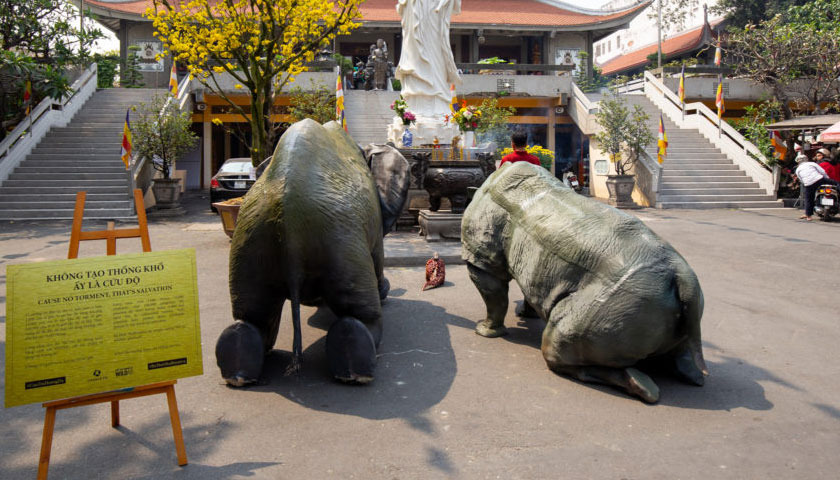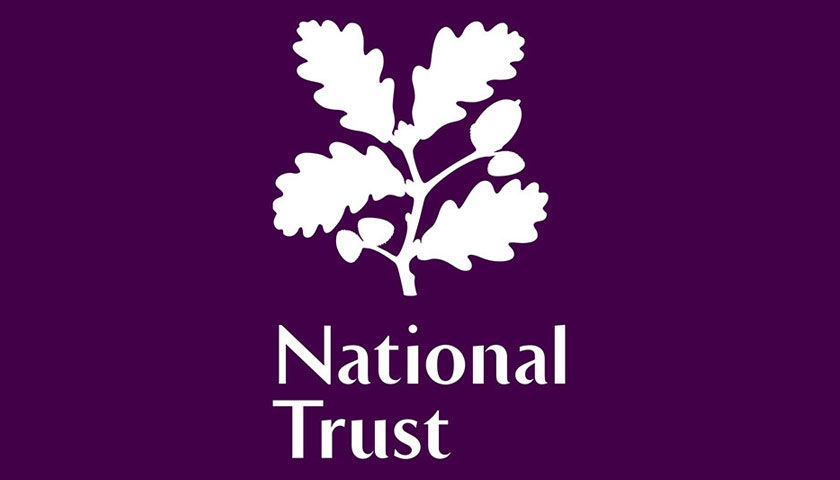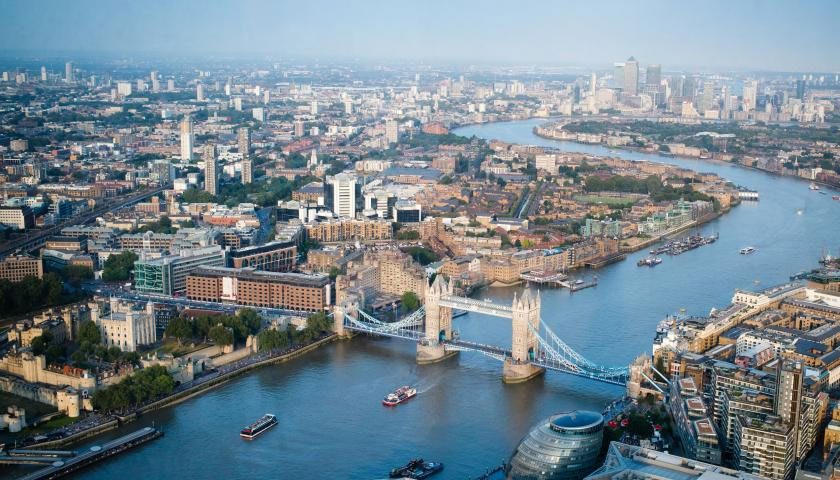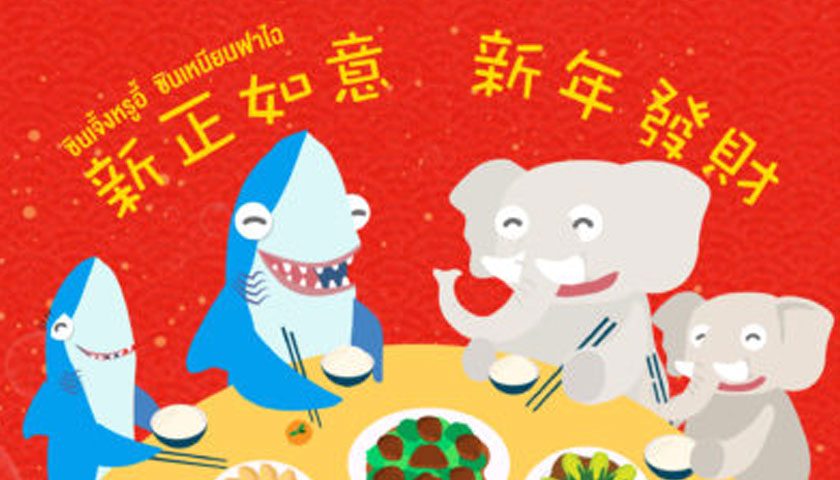In celebration of the Lunar New Year, WildAid and CHANGE along with several prominent Buddhist temples are urging Vietnamese citizens to make an auspicious start by protecting rhinos, pangolins, and elephants in a new campaign called, “Be Their Bodhisattva,” or, be their savior.
Rhinos, elephants, and pangolins are killed to supply the demand for illegal products. To launch the campaign, real-life statues of the three species kneel “in prayer” to Buddha at the Vinh Nghiem Pagoda in Ho Chi Minh City (HCMC). The rhino kneels with its horn cut off, the elephant bows with broken tusks, and the mother and baby pangolin cower with missing scales.
The statues aim to raise awareness about the devastating impact of the wildlife trade and call on the Vietnamese people to stop buying and consuming wildlife products in order to save these iconic species.
The statues aim to raise awareness about the devastating impact of the wildlife trade and call on the Vietnamese people to stop buying and consuming wildlife products in order to save these iconic species.
“With so many people looking to start their new year by helping others, we hope they will take the suggestion of this campaign to help save endangered wildlife by making their commitment to stop buying and using any wildlife products, especially rhino horn, ivory, and pangolin scales and meat,” said John Baker, WildAid’s Chief Program Officer. “We applaud the pagodas and the Buddhist monks for helping to spread this message during this most important time of year for them.”
The placement of these statues during the New Year, or Tet, is aimed at building on the belief that performing kind deeds is the best way to start the new year.
Venerable Thanh Thich Phong, Head of the Charity Department of the Buddhist Sangha in HCMC/ Abbot of Vinh Nghiem pagoda (District 3, HCMC), where the campaign was launched, said rhino horns, elephant tusks and pangolin scales do not have any medicinal value and encouraged compassion for the endangered species.
“Statues of the elephant and the rhino praying to the Buddha is to ask for our mercy and plead to people to change their attitudes” he said. “Buddhist monks and nuns must have love and tolerate all animals by not killing living beings, wearing ivory beads, using rhino horns, or eating pangolin scales and meat.”

After appearing at Vinh Nghiem Pagoda on January 28, these statues will be transported to and on display at Minh Dang Quang Buddhist Institute in HCMC from January 30 to February 12, then at Khanh An Monastery in HCMC from February 12 – 18 and again between February 28 – March 3. North Tay Thien Pagoda in Vinh Phuc Province in the North will also host these statues between February 22-24, before they return to Vinh Nghiem Pagoda on March 5 and stay there until the campaign ends on March 10.
In addition to engaging with the statues, pagoda visitors will receive Tet red envelopes as a new year’s lucky gift and view live-streamed speeches by the pagoda’s Abbots on wildlife protection. The public can also participate in interactive contests on social media while learning about the urgent threats these species face due to illegal poaching and trade in their parts. The campaign will further garner attention with the placement of public service announcement messages in movie theaters, on TV, on video screens in taxis, hospitals, banks and shopping centers, and placement of billboards.
Building on five years of continuous communications activities under the “Stop Using Rhino Horn,” “Save the Pangolin,” and “Say No to Ivory” campaigns in Vietnam, this new campaign with combined messages for all three species is an innovative activity for CHANGE and WildAid to kick off 2019. The campaign has been made possible thanks to creative consultancy from Dinosaur Vietnam.
Primarily composed of keratin, the same protein found in human hair, and fingernails, rhino horn has no unique medicinal properties. In the past few years, CHANGE and WildAid wildlife campaigns have played a vital role in reducing the demand for illegal wildlife products in Vietnam.
The price of rhino horn has fallen from $65,000 per kilo to around $22,000 per kilo, rhino horn sales have been banned, and more people are aware of the false claims about rhino horn’s medical efficacy.
A 2016 survey conducted by WildAid, African Wildlife Foundation and CHANGE in Vietnam showed that just 23% of respondents believe rhino horn has medicinal effects compared with 69% in 2014, a 67% decline. Only 9.4% of respondents believe rhino horn can cure cancer, down from 34.5% in 2014, a 73% decline. ###



